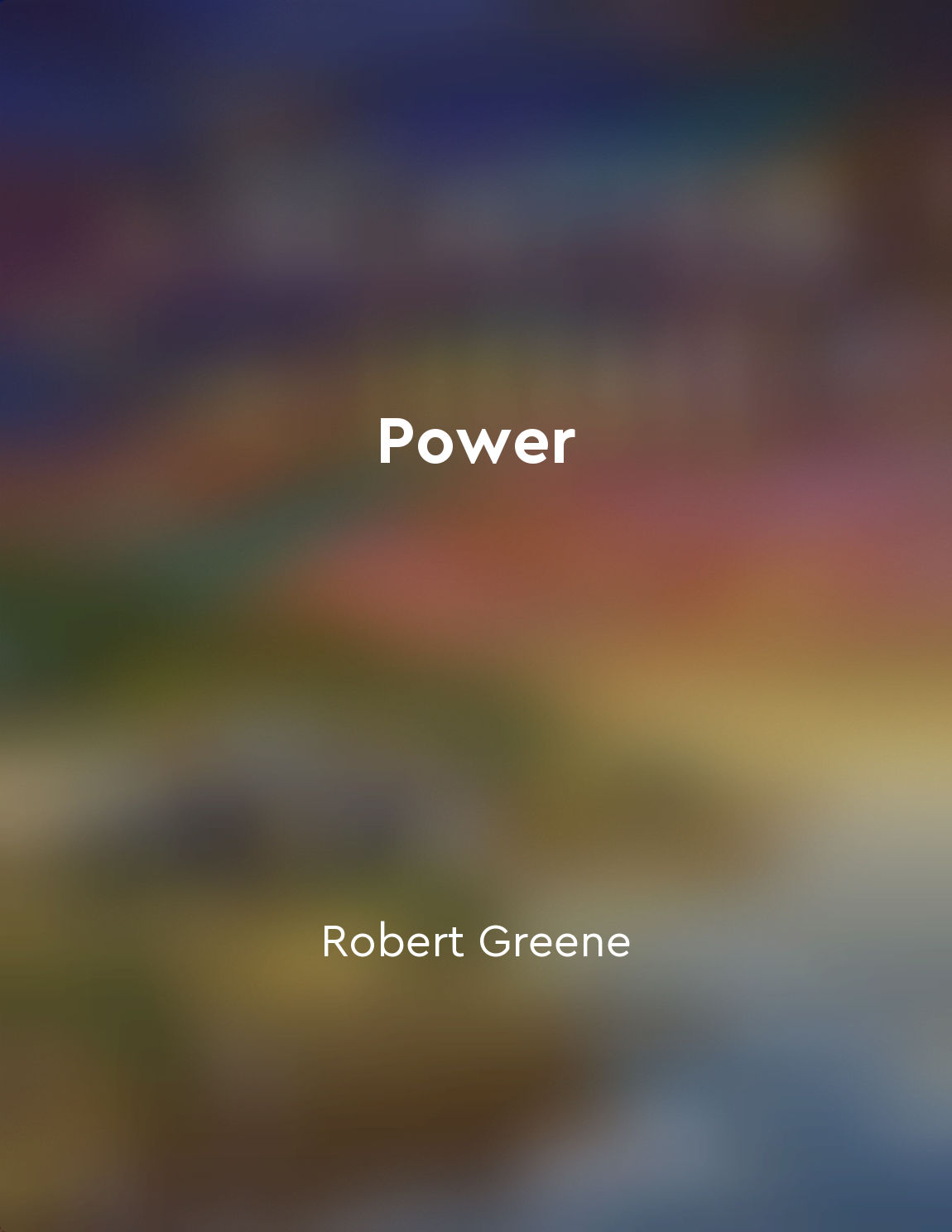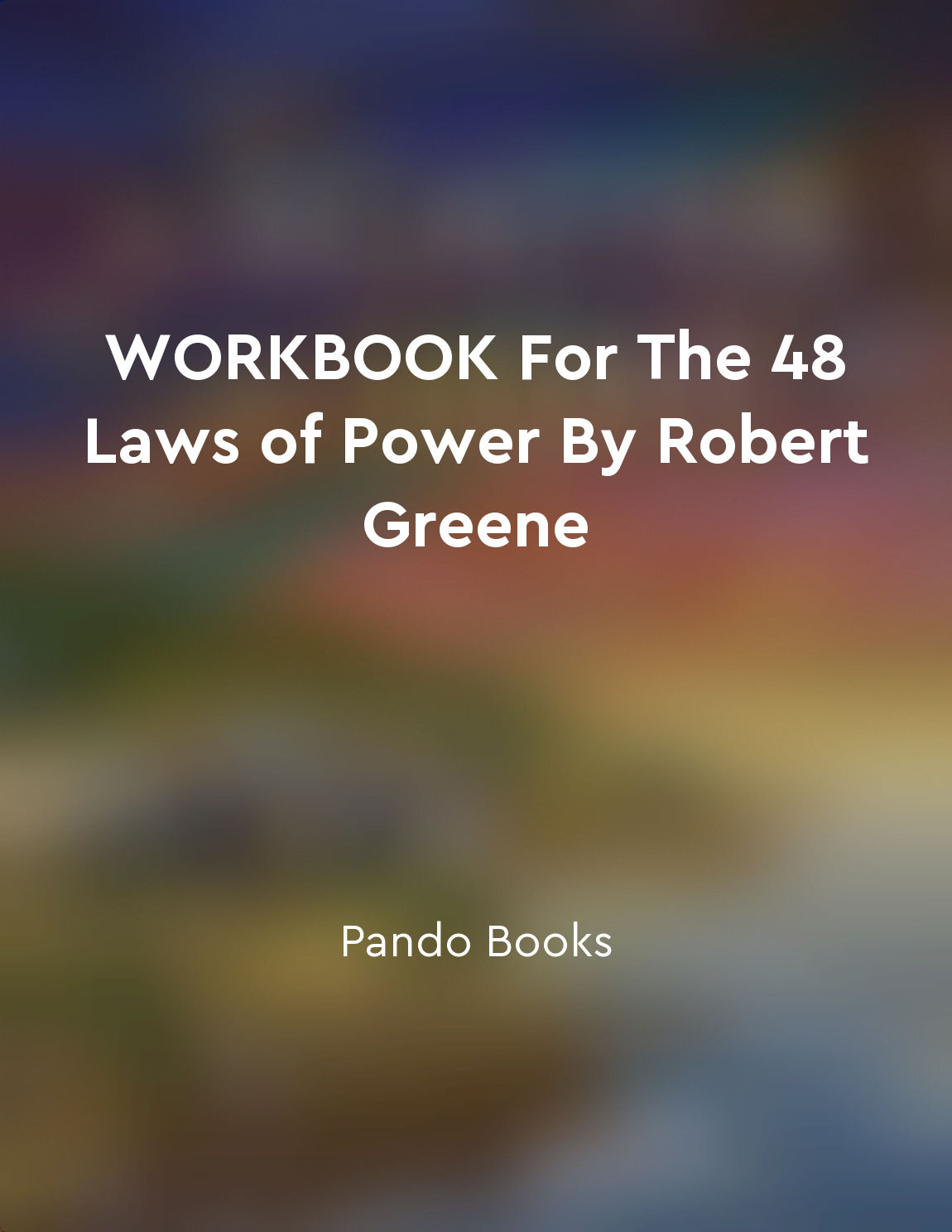Power is crucial for maintaining order from "summary" of The Prince by Niccolo Machiavelli
Power is the force that keeps a ruler in control, ensuring that order is maintained within the state. Without power, a ruler becomes vulnerable to threats and challenges from both internal and external forces, which can lead to chaos and instability. In order to govern effectively, a ruler must possess and wield power in a strategic and calculated manner. Power allows a ruler to assert their authority over the people, keeping them in line and preventing dissent and rebellion. Through the use of power, a ruler can enforce laws, punish those who disobey, and maintain the social hierarchy. Without power, a ruler risks losing the respect and obedience of the people, leading to a breakdown of order and governance. Furthermore, power enables a ruler to defend the state against external threats, such as invasion or rebellion. By having a strong military and the resources to support it, a ruler can ensure the security and stability of the state. Without power, a ruler is unable to protect the state from external enemies, leaving it vulnerable to attack and conquest.- Power is the cornerstone of effective governance, providing the means by which a ruler can maintain order and stability within the state. It is through the strategic use of power that a ruler can secure their position, deter threats, and ensure the well-being of the people. Without power, a ruler is powerless to govern effectively, leading to chaos and disorder. Thus, power is not only important but crucial for maintaining order within the state.
Similar Posts
Acting with power requires ethical decisionmaking and integrity
The ability to wield power comes with a great deal of responsibility. It is not enough to simply have authority over others; on...

Develop a deep understanding of power dynamics
To truly wield power, one must possess a profound comprehension of the intricate web of power dynamics that shape human interac...

Gain insights into the nature of power
Understanding the nature of power is a complex and multi-faceted task that requires a deep dive into the intricacies of human b...
Adaptability is key to survival in politics
Adaptability is a crucial quality for a Prince to possess in order to navigate the treacherous waters of politics. The ability ...
Play the perfect courtier to gain favor and influence within a court
To climb the heights of power, you must master the art of courtship. The court is a delicate ecosystem, where power dynamics fl...
A ruler must always be prepared for war
It is essential for a ruler to always be ready for war, as it is the ultimate test of their leadership and capabilities. War is...

Recognizing the importance of timing
Timing is crucial in the game of power. It is not enough to simply have the right information or the right strategy. One must a...
Power dynamics are pervasive in every aspect of our lives
Power dynamics are like the air we breathe - invisible yet constantly shaping our interactions, decisions, and relationships. F...

